Lebanon is a country that opens up to tourists the whole world of the magical east in the European format familiar to us. On the territory of the country there are a huge number of attractions, which are worth touching at least once in a lifetime.
Lebanon is rarely associated with Europe. And hardly many consider it as an interesting destination for tourism. But in vain! The country has many ancient, ancient cities and settlements. It seems that it was in these parts that the development of civilization began. In Baalbek and Byblos, you can see architectural monuments, the creation of which is attributed to aliens, due to their huge size and designs.
It is also worth paying attention to the natural beauties of the country. The most impressive are the Jeita Caves, the Pigeon Rocks and the picturesque valleys that lie between the mountain ranges. You can explore these places even without the help of a guide. Crowds of tourists will not interfere with a quiet holiday.
Lebanon is a Mediterranean country. The country has created all the conditions for a beach holiday: the beaches are clean, well-groomed, with a developed infrastructure. It is amazing how such a diversity and richness of culture and nature can fit in such a small country.
What to see in Lebanon?
The most interesting and beautiful places, photos and a brief description.
- City of Beirut
- The ancient city of Baalbek
- Ancient city of Byblos
- Ruins of the city of Anjar
- Jeita caves
- Virgin Mary of Lebanon (Junieh)
- National Museum of Beirut
- Sursock Museum
- Star Square in Beirut
- Martyrs' Square in Beirut
- Muhammad Al Amin Mosque
- St. Paul's Cathedral (Junieh)
- Mseilha Fort
- Sidon fortress
- Fort Saint-Gilles
- Moussa Castle
- Dog river
- Shuf Cedar Reserve
- Bekaa Valley
- Wadi Kadisha Valley
- Pigeon rocks
- Casino du Liban
- Mediterranean coast
- Baatara waterfall
City of Beirut
Beirut is the capital of Lebanon and its largest city. Its area is only 20 km², on which there are a huge number of attractions. Beirut is called the "Paris of the Middle East". He was part of France and retained European views on life. At the same time, the capital is colorful, everything here reminds of the magnificent Arab traditions.
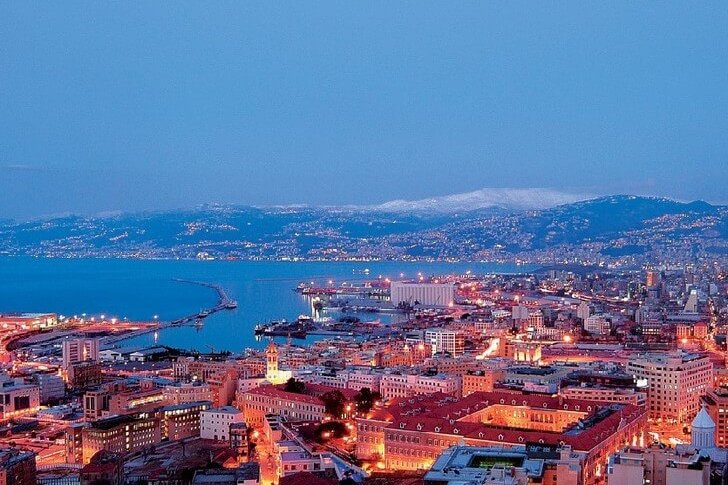
Address: City of Beirut, Lebanon, Lebanon
Opening hours: 24/7
The ancient city of Baalbek
The ancient city of Baalbek is located 80 km from Beirut. It was inhabited even before our era, and its temples were built and rebuilt for 2000 years. Their creation is attributed to extraterrestrial civilizations or the heroes of biblical tales: such incredible sizes and designs of buildings. The most interesting for tourists are terraces made of blocks weighing up to 1000 tons, the temple of Jupiter and the temple of Bacchus, which is very well preserved.
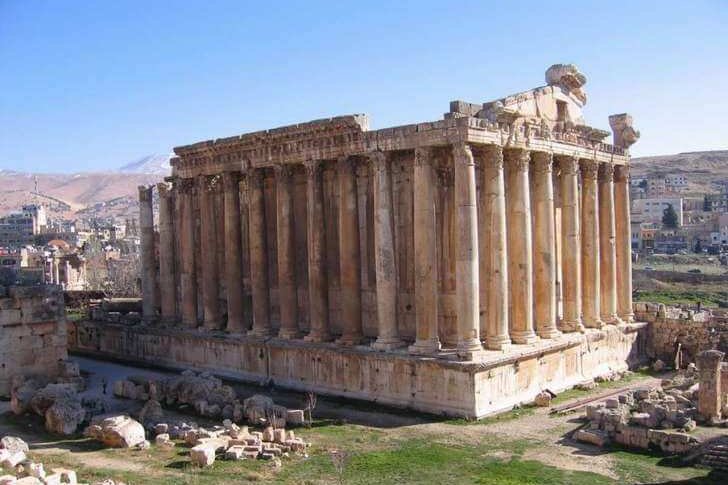
Address: The ancient city of Baalbek, Lebanon, Lebanon
Opening hours: 08:00 - 18:00
Ancient city of Byblos
X thousand years ago, the first settlements appeared on the territory of Byblos, and in the 3rd millennium BC the city was an important religious and commercial center. Since then, people have never left it. On the territory of the city you can see ancient churches, a Roman theater, an archaeological complex, a fortress. In Byblos you can feel the atmosphere of one of the oldest cities in the world, a mixture of cultures and traditions.
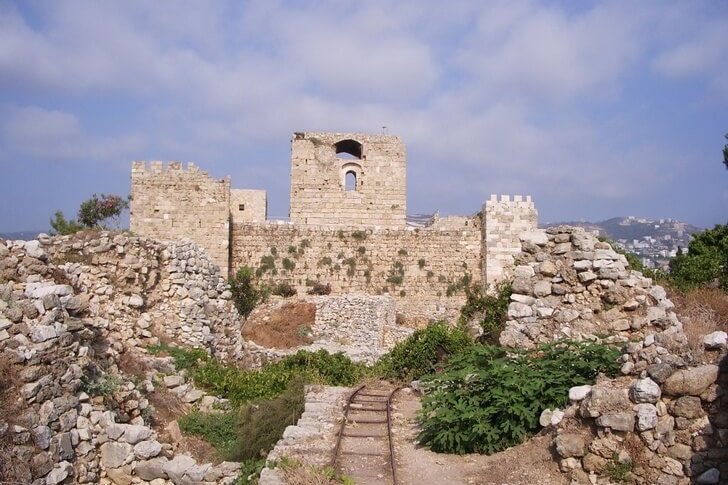
Address: Ancient city of Byblos, Lebanon, Lebanon
Opening hours: 08:00 - 17:00
Ruins of the city of Anjar
The city is located 58 km from Beirut. There is an assumption that the ancient Iturean city of Haltsis was once on the site of Anjar. The city itself has not been found, but archaeologists have discovered the remains of a majestic palace complex. Its ruins and surrounding areas are included in the UNESCO heritage list. Modern Anjar was founded in 1939, it is inhabited by 2400 people, most of whom are Armenians.
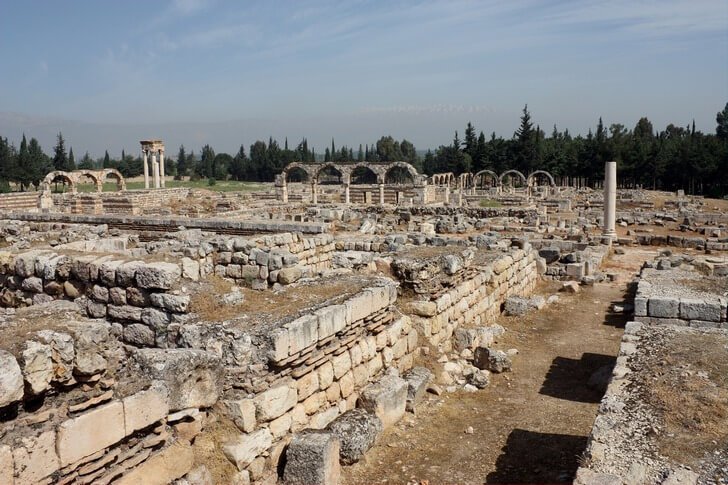
Address: Ruins of the city of Anjar, Lebanon, Lebanon
Opening hours: Daily: 8:00 AM - 6:00 PM
Jeita caves
This is an incredible natural attraction that is a must see. It is a tunnel - an exit from an underground river. Karst limestone caves stretch for almost 9 km, but tourists are shown only 600 m. Also, the remains of a foundry were found in one of the caves. In ancient times, people made weapons here. Every year the cave hosts a unique music festival.
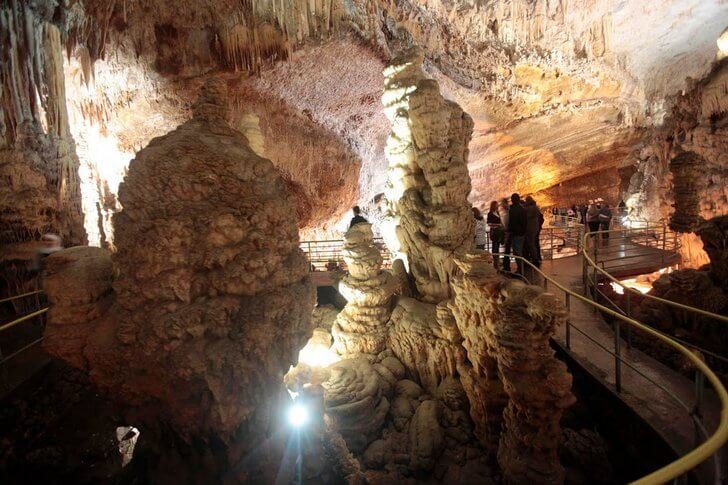
Address: Jeita caves, Lebanon, Lebanon
Phone: +961 9 222 210
Opening hours: 9:00 AM - 5:00 PM
Virgin Mary of Lebanon (Junieh)
This is a monument built in the city of Jounieh, 20 km from Beirut. It was cast in France, and then transported to Lebanon and placed on the hill of Harissa, whose height is 650 m. Therefore, the 20-meter statue of the Virgin Mary can be seen from anywhere in the city. You can climb to it by cable car, at the same time examining the area. At the foot of the mountain there are also many attractions.
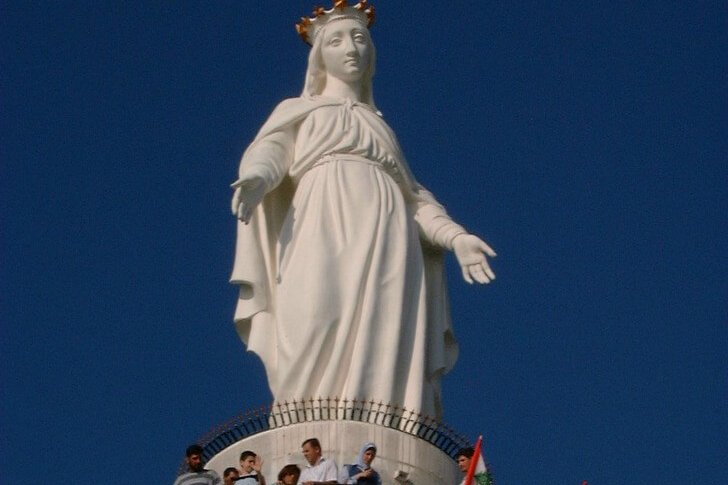
Address: Virgin Mary of Lebanon (Junieh), Lebanon, Lebanon
Opening hours: 08:00 - 17:00
National Museum of Beirut
To understand the rich and intricate history of Lebanon, you need to visit the National Museum of Beirut. It contains a collection of more than 100 thousand artifacts, which is constantly updated. This museum is one of the richest in the Middle East. It has incredible mosaics, valuable sarcophagi including the sarcophagus of King Ahiram and excavations.
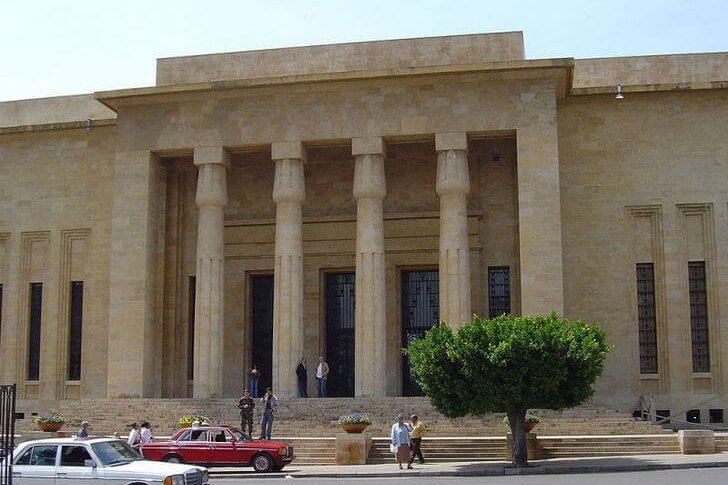
Address: National Museum of Beirut, Lebanon, Lebanon
Opening hours: Monday to Sunday: 9:00 AM - 5:00 PM
Sursock Museum
A private museum housed in a beautiful old house owned by Nicolas Sursock. According to his will, after his death, the house was turned into a museum. The exposition has more than 5000 exhibits and a large library. The museum displays both antiques and examples of contemporary art. The most interesting are the ancient jug, the first printed Koran and the ancient Bible.
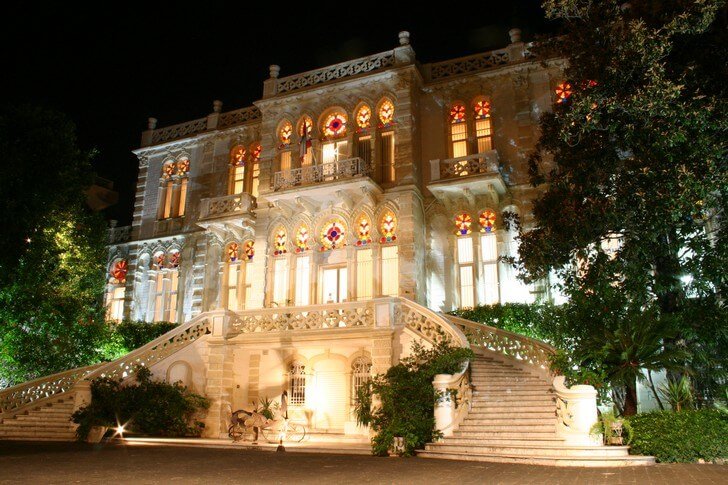
Address: Sursock Museum, Lebanon, Lebanon
Phone: +961 1 202 250
Opening hours: Monday - Sunday: 10:00 - 18:00
Star Square in Beirut
This is the heart of old Beirut. Many sights are concentrated around it, and the adjacent streets are fraught with many secrets and a long history. Among the buildings there are even several Christian shrines. With the advent of darkness, the square becomes the center of Beirut's nightlife. There are many cafes and bars that are loved by the locals.
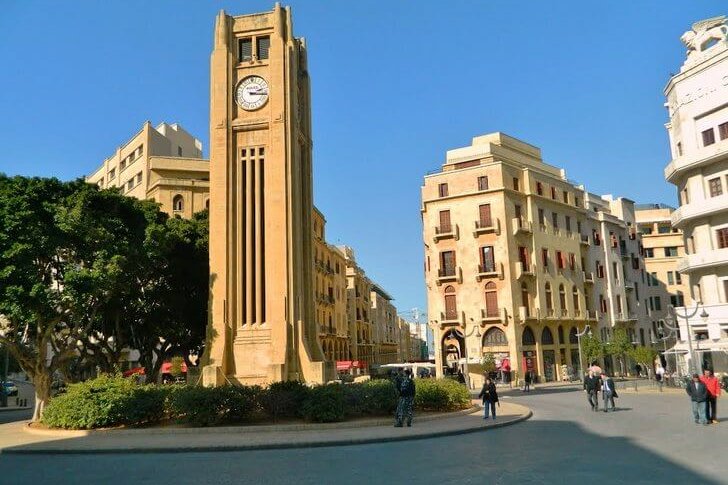
Address: Star Square in Beirut, Lebanon, Lebanon
Opening hours: 09:00 - 22:00
Martyrs' Square in Beirut
Back in the 30s of the last century, a monument was erected on the square to the Lebanese who died in the fight against the Turkish invaders. Since then, the area has received its name. During the war, the so-called "Green Line" also passed through it, which divided Beirut into two parts: Muslim and Christian. Near the square is the beautiful mosque of Mohammed Al-Amin.
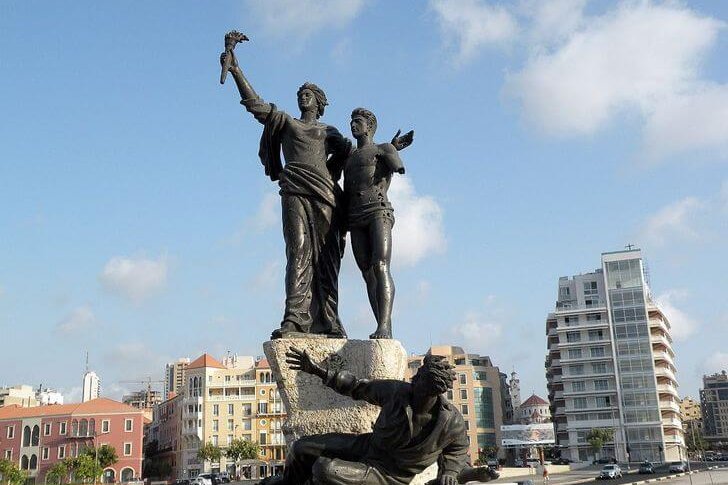
Address: Martyrs, Lebanon, Lebanon
Opening hours: 24/7
Muhammad Al Amin Mosque
The mosque was built for 5 years, from 2002 to 2007 near Martyrs' Square by Prime Minister Rafik Hariri. After his death, he was buried next to her. The area of the mosque exceeds 10 thousand km². The yellow stones of the walls contrast with the blue dome with features of gold. It is a masterpiece of religious architecture in Beirut. Local residents hold political demonstrations near it.
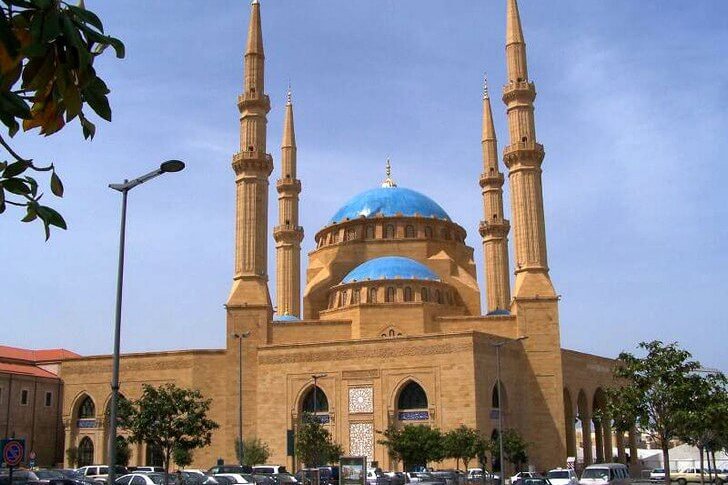
Address: Muhammad Al Amin Mosque, Lebanon, Lebanon
Opening hours: 04:00 - 22:00
St. Paul's Cathedral (Junieh)
The temple is located at the foot of Mount Harissa, on which a statue of the Virgin Mary is placed. It was built in 1962. This is one of the most beautiful buildings in Lebanon, a vivid example of Byzantine architecture. Divine services in the temple are held according to the Byzantine rite, and it belongs to the Melkite Greek Catholic Church. The cathedral has an unusual appearance and rich decoration.

Address: St. Paul, Lebanon, Lebanon
Opening hours: 08:00 - 18:00
Mseilha Fort
To the north of the city of Batroun is a medieval fortification - Fort Mseila. It rises on a long and narrow limestone terrace above the Nakhrel-Yauz River. The fortress was built by Emir Fakhruddin II in the 17th century. The fort is guarded by walls 1.5 - 2 meters thick made of sandstone. You can enter the fortress through the gate, inside it there is a triangular courtyard and an entrance to the towers.
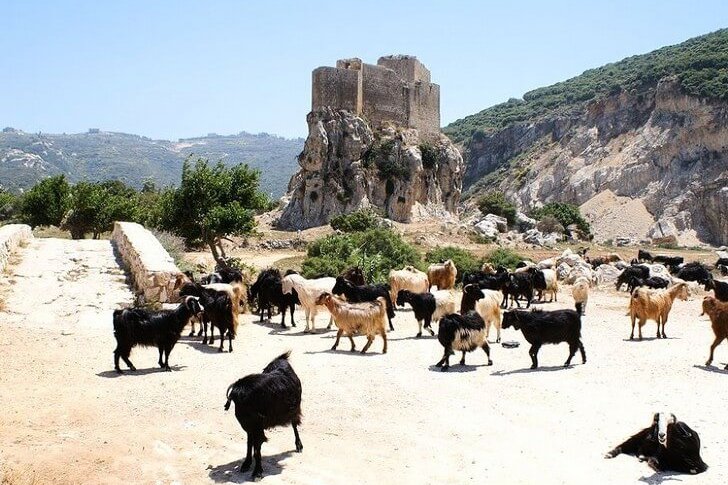
Address: Mseilha Fort, Lebanon, Lebanon
Opening hours: Daily: 9:00 AM - 5:00 PM
Sidon fortress
The fortress is located on the Mediterranean coast of Lebanon. In the past, she protected the port city of Sidon, which once prospered. The fortifications that have survived to this day were created by the crusaders in the 13th century. Tourists can see the massive defensive towers of the fortress. In the western one, which is better preserved, you can see the remains of ancient weapons.
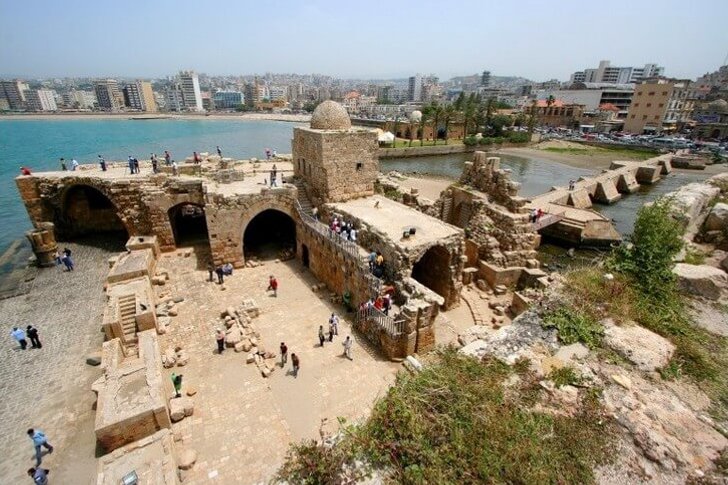
Address: Sidon fortress, Lebanon, Lebanon
Opening hours: 08:00 - 17:00
Fort Saint-Gilles
Raymond de Saint-Gilles citadel is located in the city of Tripoli. It is named after the Count of Toulouse, the commander of the crusaders. He started building it on top of the hill in 1103 to protect against attacks. This is a powerful building, the length of which is 140 meters and the width is 70. In addition to the fact that the fortress gives an excellent idea of the historical events of Lebanon, it offers beautiful views.
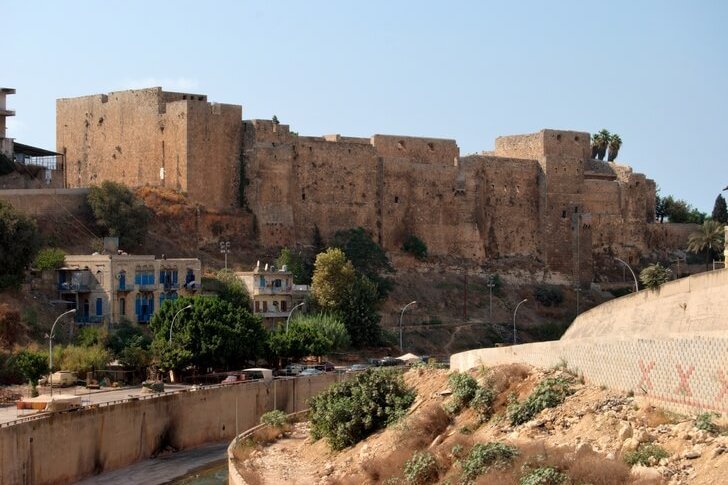
Address: Fort Saint-Gilles, Lebanon, Lebanon
Opening hours: 09:00 - 17:00
Moussa Castle
Moussa's castle is called the fortress of love. It was built by a poor peasant for his beloved. He began construction at the age of 14 and continued to build the castle for the next 25 years. The saddest thing is that he never won the heart of his beloved, but he achieved great love from the locals. Tours of the castle are conducted by Moussa himself. He shares his story with everyone.
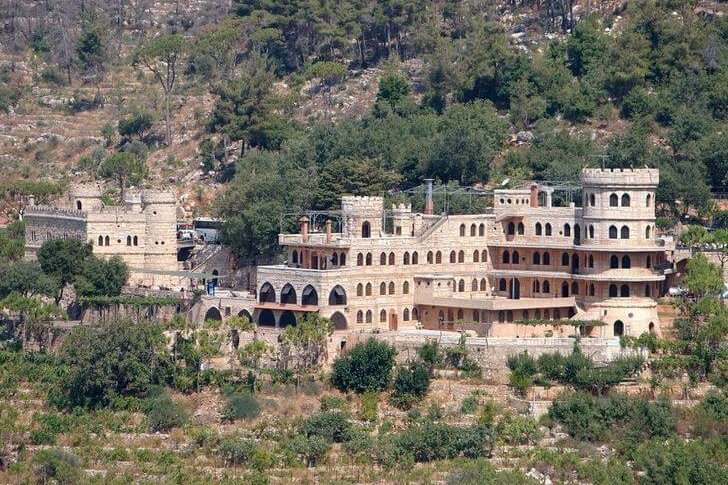
Address: Moussa Castle, Lebanon, Lebanon
Opening hours: 09:00 - 18:00
dog river
The river got its name because of the legend about the dog guarding the banks. But she is not only interested in this. Numerous military campaigns were carried out along it, and the history of Lebanon was being made, because of which you can see many commemorative plaques. This is an important landmark of the country. It carries information about the fateful events that influenced the future of the country.
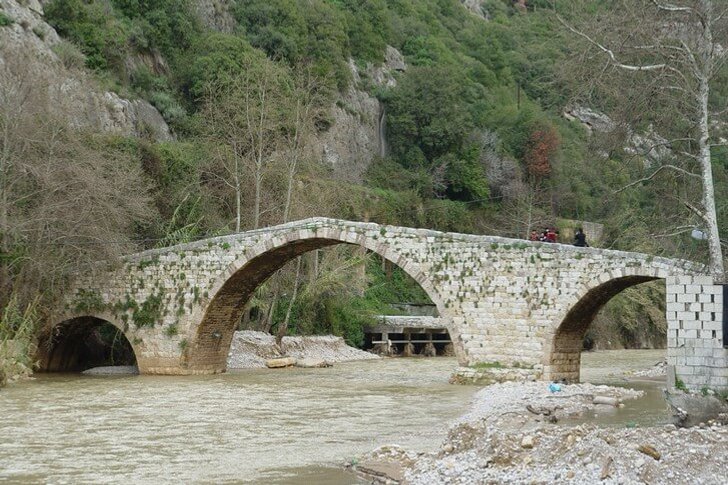
Address: Dog river, Lebanon, Lebanon
Opening hours: Monday to Sunday: 9:00 AM - 7:00 PM
Shuf Cedar Reserve
This is the largest nature reserve in Lebanon. Its area is 550 km², which is about 5% of the entire territory of the country. The main protected value of the reserve is the Lebanese cedar. Some of them are over 2,000 years old. The reserve is home to 32 species of mammals and about 200 species of birds. Not far from the reserve are the fortresses of Kab-Ilias and Kalat-Ninha.
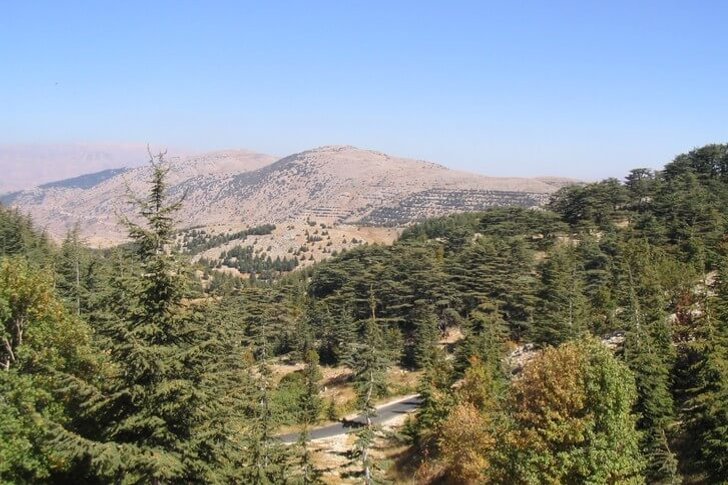
Address: Shuf Cedar Reserve, Lebanon, Lebanon
Opening hours: 7:00 AM - 6:00 PM
Bekaa Valley
The valley is located in the east of Lebanon, 30 km from Beirut. It is an important agricultural area that lies between the Lebanon and Anti-Lebanon mountain ranges. The largest cities in the valley are Zahre and Bekaa. There are many interesting places in the valley. The temple complex located on its territory is included in the UNESCO heritage list. Also, the valley gained sad fame after the Lebanese war.

Address: Bekaa Valley, Lebanon, Lebanon
Opening hours: 08:00 - 18:00
Wadi Kadisha Valley
This is a valley located in the districts of Bishir and Zgharta. Its name translates as "Holy". This is explained by the fact that there were once many Christian shrines on its territory, and there was a monastic community. Because of this, it is taken under the protection of UNESCO, as one of the earliest places for the formation of monastic settlements.
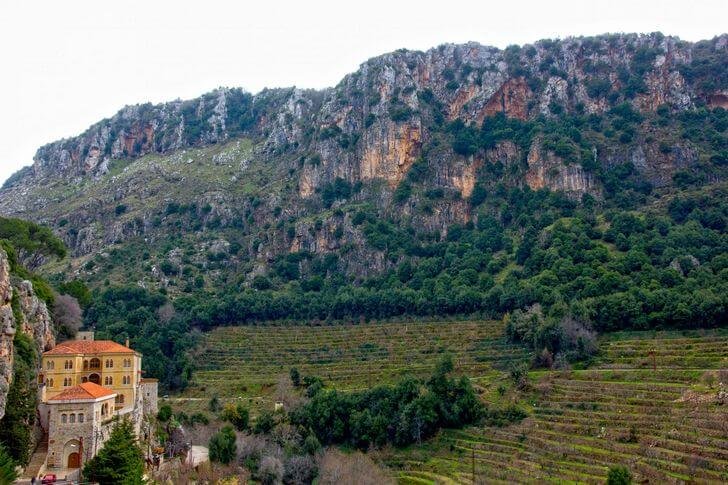
Address: Wadi Kadisha Valley, Lebanon, Lebanon
Opening hours: 7:00 - 18:00
pigeon rocks
This is a natural wonder of Beirut. Pigeon Rocks are two small islands that are located off the coast in the Mediterranean Sea. They got their name because of the large number of pigeons that make nests and have been living here for hundreds of years. This place will be interesting for photographers. At sunset, you can take beautiful pictures while sitting in a cozy restaurant on the shore.
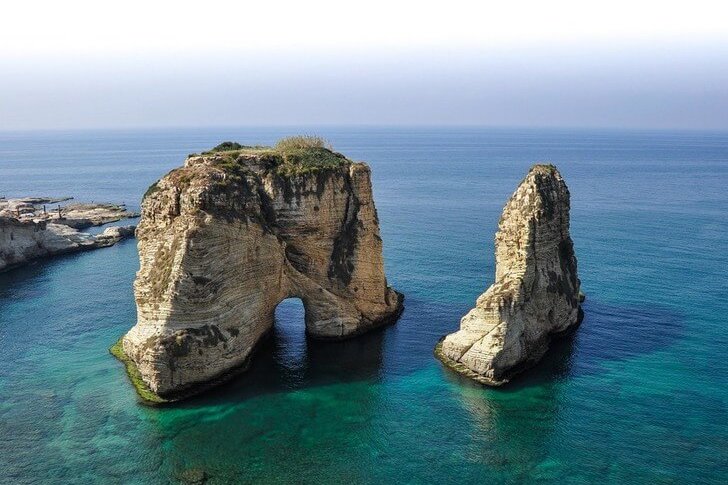
Address: Pigeon rocks, Lebanon, Lebanon
Opening hours: 24/7
Casino du Liban
Among the numerous cafes, restaurants and bars, shops and hotels located near the bay of Jounieh, there is a huge "Casino du Liban". It was dug up in 1959. Its area is 34 thousand m². It is a vibrant tourist attraction that includes over 60 poker tables, roulette and 400 slot machine rooms, a showroom and five restaurants.
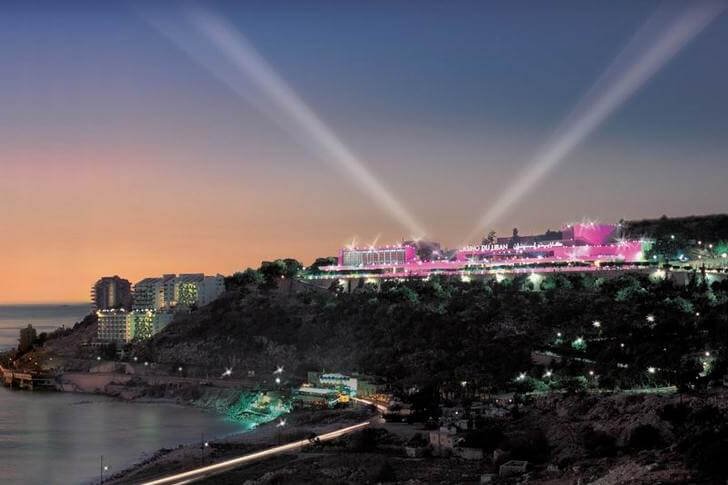
Address: Casino du Liban, Lebanon, Lebanon
Phone: +961 9 222 100
Opening hours: 14:00 - 02:00
Mediterranean coast
The Mediterranean has gathered a wide variety of resorts near it and attracts a huge number of tourists every year. Lebanon owns 225 km of coastline, the main resorts on which are Beirut, Sidon, Nabatea, Tripoli, Tire. The coast of the latter is considered the cleanest. Most of the beaches are paid, but the price includes sunbeds, umbrellas, showers and even a visit to a cafe.

Address: Mediterranean coast, Lebanon, Lebanon
Opening hours: 08:00 - 22:00
Baatara waterfall
Baatara Falls is located near the city of Tannorin. It was discovered in 1953 by explorer Henry Coif. Its name translates as "Cave of the Three Bridges". It is given to the waterfall because of the three caves through which its waters pass. The height of the waterfall is 225 meters, which makes it very spectacular, powerful and picturesque. The waterfall is popular with tourists.
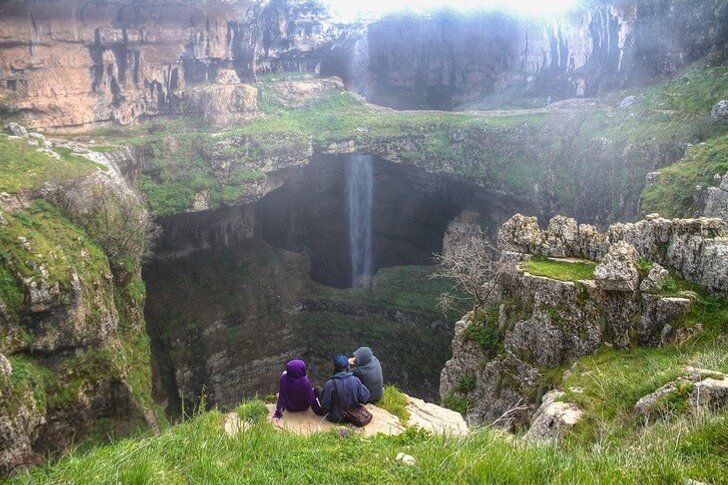
Address: Baatara waterfall, Lebanon, Lebanon
Opening hours: 24 hours